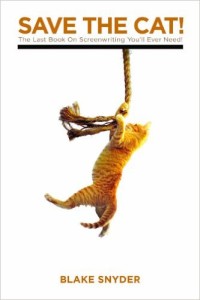 Writing is hard enough, and even harder when you’re really busy. How many times have you been doing something and a great scene pops into your head? It may have to deal with your current WIP (or sometimes even a sequel you haven’t thought about writing), or it may be a scene far toward the end of the book. Writers joke about the worst places inspiration can hit: the car, the shower, in a restaurant, out shopping, or the most common: in bed. If you’re like me, your characters are with you all the time — and sometimes it’s annoying. They sneak into your thoughts and create scenes that are amazing when you least expect it. Yeah, thanks, guys!
Writing is hard enough, and even harder when you’re really busy. How many times have you been doing something and a great scene pops into your head? It may have to deal with your current WIP (or sometimes even a sequel you haven’t thought about writing), or it may be a scene far toward the end of the book. Writers joke about the worst places inspiration can hit: the car, the shower, in a restaurant, out shopping, or the most common: in bed. If you’re like me, your characters are with you all the time — and sometimes it’s annoying. They sneak into your thoughts and create scenes that are amazing when you least expect it. Yeah, thanks, guys!
These fleeting scenes are the gold in your writing. They are raw, wild, and spontaneous. So what do you do about them? Continue reading “The Non-Linear Novel-Writing Approach”

 It’s the new year, so we always hear a lot about resolutions around this time. While I’m not going to talk about resolutions, I do think the new year is a great time for authors to think about the year ahead.
It’s the new year, so we always hear a lot about resolutions around this time. While I’m not going to talk about resolutions, I do think the new year is a great time for authors to think about the year ahead. One of the hardest things about being an indie author is learning the business side of writing. You can be the best writer in the world, but if you can’t figure out a way to sell books and maintain those sales, then it’s going to be really hard to turn your talent into a career.
One of the hardest things about being an indie author is learning the business side of writing. You can be the best writer in the world, but if you can’t figure out a way to sell books and maintain those sales, then it’s going to be really hard to turn your talent into a career.